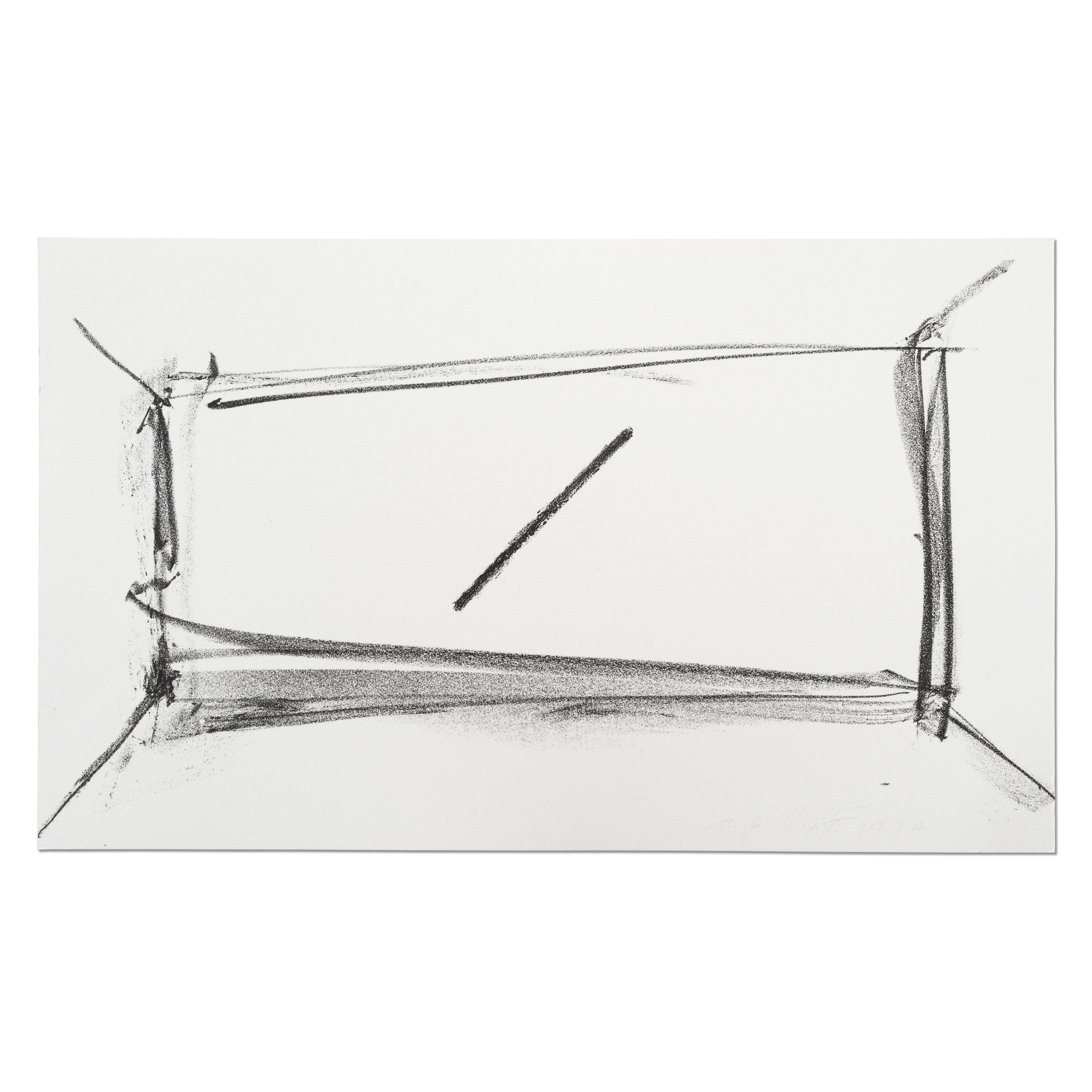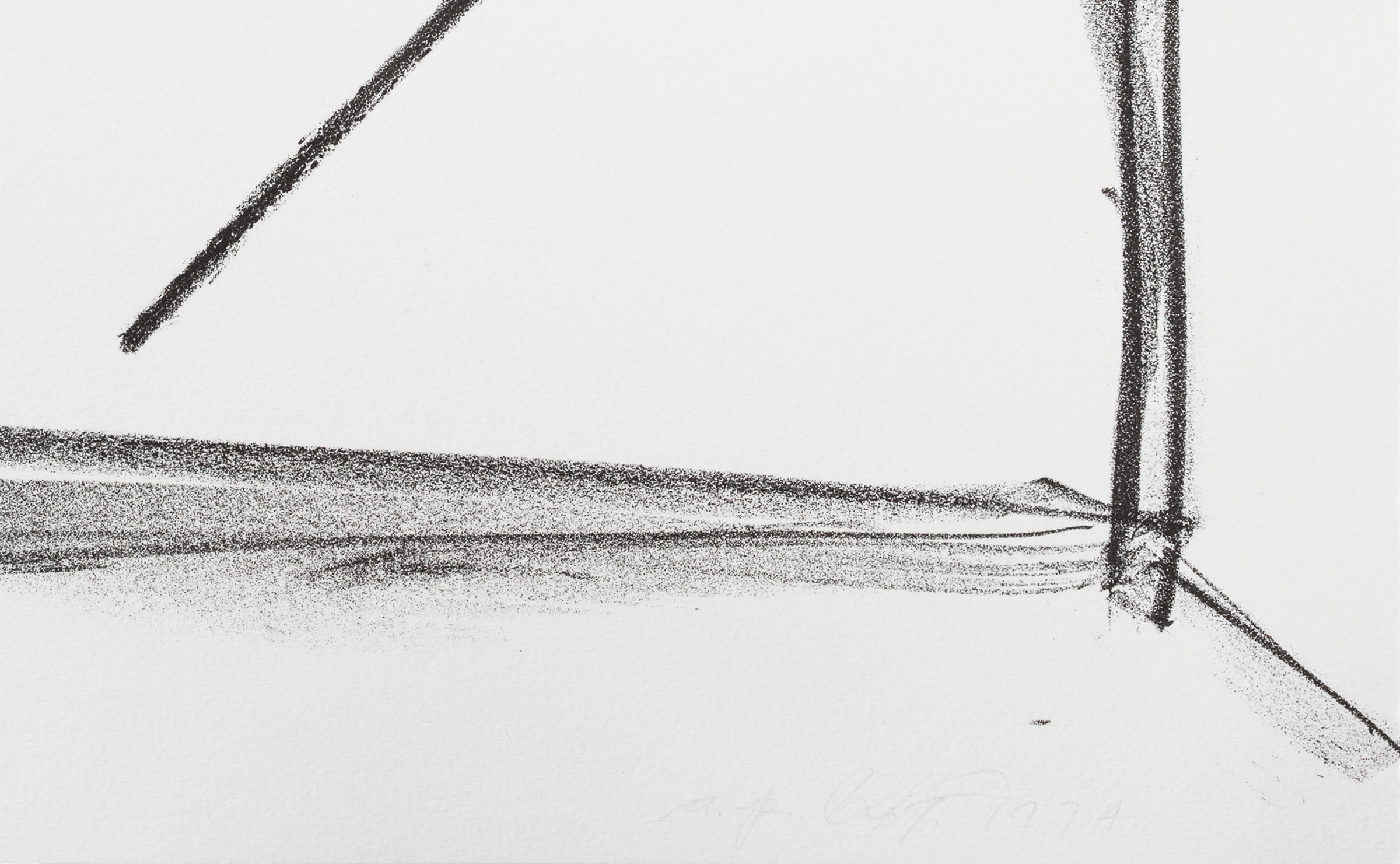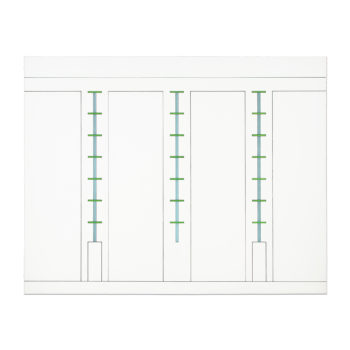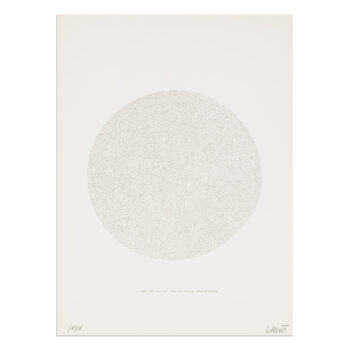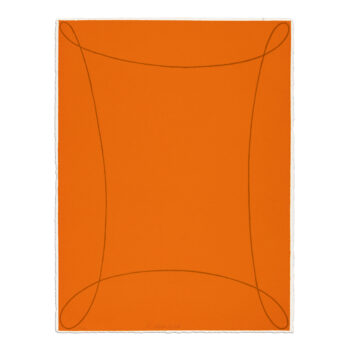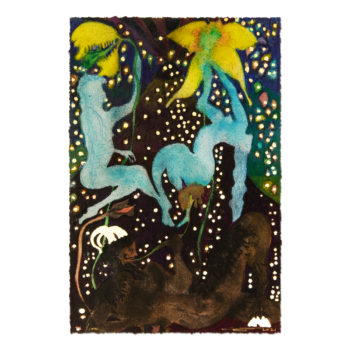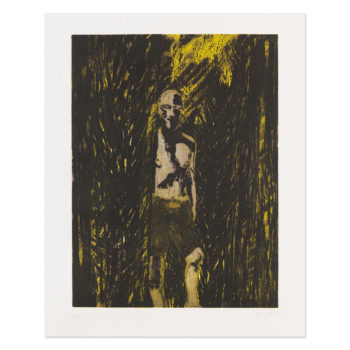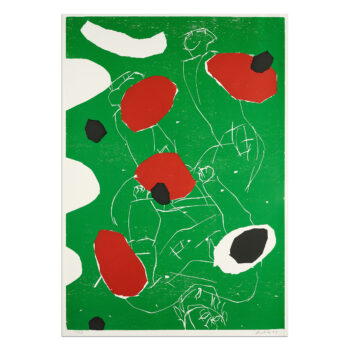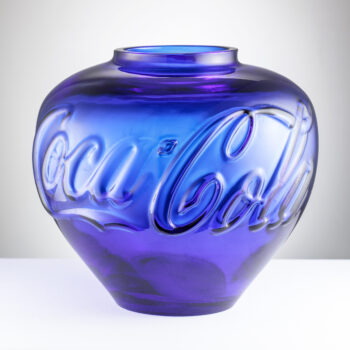I like art as thought better than art as work. I’ve always maintained this. It’s important to me that I don’t get my hands dirty. It’s not because I’m instinctively lazy. It’s a declaration: art is thought.- Dan Flavin
Dan Flavin, born in 1933 in New York and passing in 1996, is celebrated as a pioneering force in the realms of light art and minimalism, a movement that sought to distill art to its purest forms. His iconic light installations, utilizing commercial fluorescent bulbs, marked a seminal shift in the perception and creation of artwork during the post-war American era. By assembling these lights into various geometric shapes, Dan Flavin explored the interplay between electric light, color, and the surrounding space, casting environments in a new, immaterial dimension that challenged traditional artistic mediums. Flavin’s dedication to minimalistic principles was evident in his choice of simple, industrial materials, aligning his work with that of Minimalist contemporaries like Donald Judd and Sol LeWitt. After 1963, his artworks consisted almost exclusively of light installations, employing a limited palette of ten colors and five shapes. This deliberate constraint not only differentiated his work from conventional art forms but also recontextualized ordinary fluorescent tubes into objects of high art, transforming mundane spaces into immersive, contemplative environments. Though Dan Flavin is primarily known for his light sculptures, his influence extends into printmaking. In his prints, Flavin utilized geometric shapes and subtle color variations, echoing the compositional and thematic concerns present in his light installations. These artworks are marked by a restrained use of color and form, underscoring his minimalist approach. Flavin’s printmaking practice allowed him to experiment with a different materiality, offering a contrast to the ephemeral quality of light with the tactile nature of print media. Major retrospectives at institutions such as the National Gallery of Canada (1969), St. Louis Art Museum (1973), Kunsthalle Basel (1975), and MOCA in Los Angeles have celebrated Flavin’s contribution to contemporary art. Further posthumous retrospectives by the Deutsche Guggenheim in Berlin and the Dia Foundation for the Arts have underscored his lasting impact on the art world, showcasing Flavin’s innovative use of light not just as a medium but as a radical form of expression, forever altering the landscape of modern art. organized by the National Gallery of Canada in Ottawa (1969), St. Louis Art Museum (1973), Kunsthalle Basel (1975), and MOCA in Los Angeles (1989). Both the Deutsche Guggenheim in Berlin (1999) and the Dia Foundation for the Arts (2004) presented major posthumous retrospectives of the artist’s work.
Dan Flavin, The Diagonal of May 25, 1963 in Fluorescent Light
